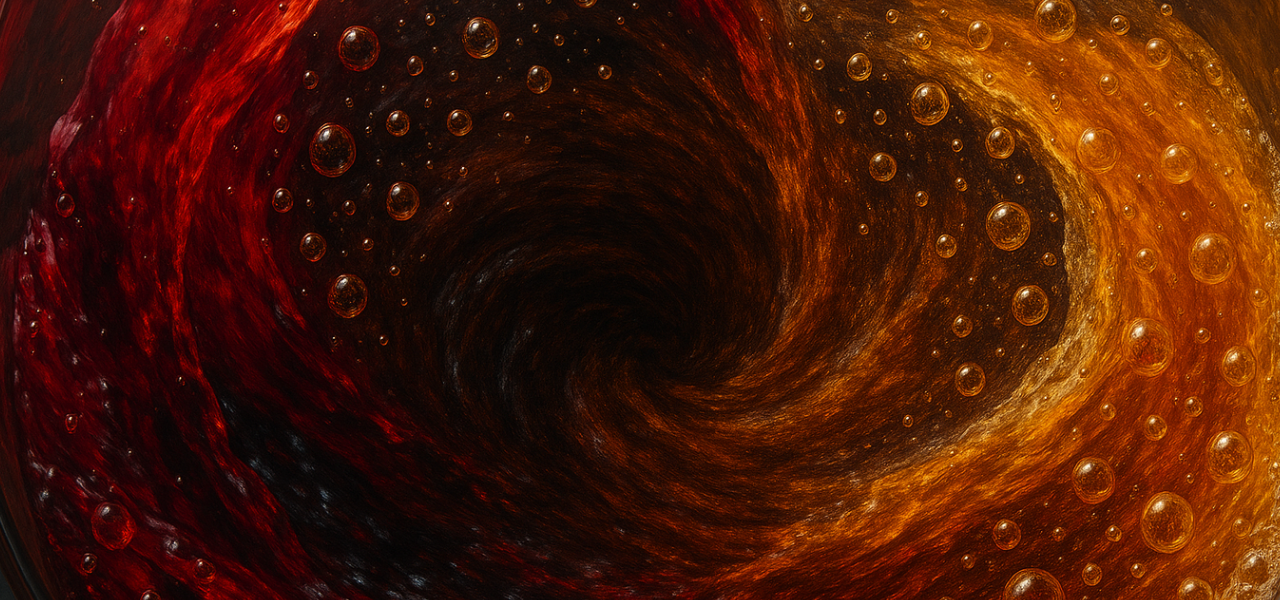Neurologists say these 3 drinks are damaging your brain

The connection between what we drink and how our brains function represents one of the most overlooked aspects of cognitive optimization. While much attention focuses on brain-boosting foods, the beverages we consume daily can significantly impact neurological wellness, memory formation, and long-term mental performance. Dr. Jasdeep Hundal, PsyD, ABPP-CN, and Director of The Center for Memory & Healthy Aging at Hackensack Meridian Jersey Shore University Medical Center, emphasizes this critical relationship: "Your brain is literally built from what you put in your body. Every bite, sip, or snack can either fuel your brain or slow it down."
For health-conscious individuals seeking to optimize cognitive function and protect long-term brain health, understanding which common beverages may work against these goals becomes essential. Research suggests that certain popular drinks can interfere with neurotransmitter function, promote inflammation, and potentially contribute to cognitive decline over time. The following three beverages, according to neurological experts, represent some of the most concerning choices for anyone prioritizing mental clarity and neurological wellness.
3 Worst Drinks for Your Brain Health, According to Neurologists
1. Diet Soda
The appeal of diet soda lies in its promise of sweet satisfaction without calories, making it a popular choice among health-conscious consumers. However, Dr. Hundal warns that this seemingly better alternative may come with significant neurological concerns. "Many types of diet soda contain aspartame, which is questionable at best," he explains. "Some research suggests aspartame can cause headaches, mood swings, anxiety and even cognitive issues over time."
Studies indicate that artificial sweeteners like aspartame may interfere with neurotransmitter function and have been associated with changes in brain chemistry. The compound breaks down into methanol, aspartic acid, and phenylalanine in the body, and research suggests these metabolites may impact neurological function in sensitive individuals. Dr. Hundal particularly advises caution for those consuming multiple diet sodas daily: "Your brain has enough to deal with without extra chemical interference."
Implementation guidance: If you currently drink several diet sodas per day, consider gradually reducing consumption while introducing brain-healthy alternatives like sparkling water with natural fruit essence or herbal teas.
2. Wine
Red wine has long enjoyed a reputation as a health-promoting beverage, with some studies suggesting potential cardiovascular benefits and even mood support. However, Dr. Hundal notes that the conversation around alcohol and brain health is evolving significantly. "Alcohol, even in small amounts, slows down brain function," he states. "You feel relaxed, but your cognitive processing, decision-making and memory take a hit."
Research consistently shows that alcohol acts as a central nervous system depressant, interfering with neurotransmitter balance and cellular communication in the brain. Long-term studies have associated regular alcohol consumption with brain tissue shrinkage, memory problems, and increased risk of dementia. Even moderate consumption may impact sleep architecture, which is crucial for memory consolidation and cognitive recovery. Dr. Hundal advises against drinking wine specifically for perceived health benefits, suggesting that any potential advantages are outweighed by the neurological costs.
Implementation guidance: Those seeking the antioxidant benefits often attributed to red wine might consider grape juice diluted with sparkling water or green tea, both of which provide beneficial compounds without alcohol's cognitive interference.
3. Fruit Juice
Fruit juice presents a particularly deceptive challenge for brain health because of its healthy reputation and natural origins. However, Dr. Hundal explains that fruit juice essentially represents "liquid sugar without the fiber to slow it down." This rapid sugar absorption can significantly impact neurological wellness through multiple mechanisms.
Research suggests that excess sugar intake fuels systemic inflammation, which has been associated with cognitive decline and memory problems. High sugar consumption may also disrupt insulin regulation in the brain, potentially affecting neurotransmitter function and cellular energy metabolism. Studies indicate that elevated sugar intake over time may be linked to shrinkage in brain regions crucial for memory formation and retention. The absence of fiber in fruit juice means blood sugar spikes occur more rapidly and dramatically than with whole fruits, potentially amplifying these negative effects on cognitive function.
Implementation guidance: When craving fruit flavors, consider eating whole fruits instead, or dilute 100% fruit juice with equal parts water to reduce sugar concentration while maintaining taste satisfaction.
Brain-Healthy Beverage Alternatives
Dr. Hundal recommends several superior options for supporting cognitive function and neurological wellness. Plain water remains the gold standard for brain hydration, as even mild dehydration can impact concentration and mental clarity. Carbonated water with a splash of citrus provides refreshing variety without added sugars or artificial compounds.
Infused waters using fresh fruit, mint, or cucumber offer natural flavoring while maintaining hydration benefits. Green tea, black tea, and black coffee provide beneficial compounds like L-theanine and antioxidants that research suggests may support cognitive function. For those transitioning away from fruit juice, Dr. Hundal recommends diluting 100% fruit juice with water in a 1:1 ratio to reduce sugar impact while maintaining familiar flavors.
Optimizing Your Approach to Brain-Healthy Hydration
The key to successfully transitioning away from brain-harmful beverages lies in gradual implementation rather than dramatic overnight changes. Start by replacing one problematic drink per day with a healthier alternative, allowing your taste preferences to adapt naturally over time. Focus on hydration as a foundation for cognitive performance, as proper fluid balance supports neurotransmitter function, waste removal, and overall brain metabolism.
Remember that individual responses to dietary changes can vary significantly based on genetics, current health status, and lifestyle factors. While these evidence-based recommendations reflect current neurological research, it's important to work with healthcare providers when making significant dietary modifications, especially if you have existing health conditions or take medications that might interact with dietary changes.



